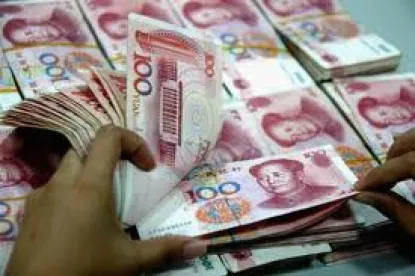Banks in China have long been criticised for charging irregular and exploitatively high fees. According to recent reports, China’s National Development and Reform Commission (NDRC) will soon conduct a widespread inspection into China’s banking industry. The inspection is expected to be conducted by 10,000 inspectors from NDRC offices across the country and will cover 3,000 types of banking fees, including feesfor companies, businessesand individuals. Banks could face millions or even billions in fines.
At the National Price Supervision, Inspection and Anti-Monopoly Meeting on 23 and 24 December 2011, the deputy chief of China’s National Development and Reform Commission(NDRC) indicated that in 2012 NDRC will proceed with further enforcement of the Anti-Monopoly Law(AML), and investigate and inspect fees charged by banks, prices of coal for generating electricity and educational expenses. According to more recent reports, a massiveinspection “storm” will soon begin in China’s banking industry. Banks in China, which have an estimated asset base of more than RMB 110 trillion,have been criticised for charging irregular and exploitatively high fees for a long time. Serious inflation and funding difficulties in the last year for small businesses and individuals underscore the criticism.
10,000-Person Inspection Army
Sources close to authorities disclosed that an inspection program led by NDRC, with the participation ofthe People’s Bank of China and the China Banking Regulatory Commission (CBRC), regarding fees charged inthe banking industry, will be formally launched no later than April 2012. Around 10,000 inspectors from NDRC’s local offices across the country will be involved in conducting such inspections.This is a rare inspection program and is thus called the “10,000-Person Big Inspection”. The inspection is expected to cover 3,000 items of banking fees, including feesfor companies, businessesand individuals, and will be very detailed and strict.
It is likely to be conducted by means of cross-checking, which means an NDRC local counterpart inspects banksoutside its own jurisdiction. Further, NDRC may undertake secret inspections, similar to “dawn-raids” undertaken by EU and US competition authorities.
Potential Huge Fines
It is understoodNDRC will mainly enforce the Price Law in the upcoming inspection because the Price Law regulates both dominant and non-dominant business operators. The AML may also be applied if there is price-cartel or abuse of dominant conduct detected. In addition to confiscation of illegal gains, the Price Law entitles NDRC to impose a fine of up to five times the illegal gains while the AML provides for a fine of between 1 per centand 10 per cent of annual turnover. Accordingly, no matter which law is applied, banks could face millions or even billions in fines, considering the billions in turnover and the millions of potentially irregular charges usual in banking industry.
A source in the banking industry of Zhejiang province disclosed that a sub-branch of a big state-owned bank had been fined RMB 1 billion for illegally selling financial products. As this news has not been officially released, it still needs to be verified.
Banks’ Actions
The 10,000-Person Big Inspection imposes a heavy burden and considerable pressure on banks. To prepare for the investigation, some banks haveintroduced new internal rules for charging fees and started to conduct self-examinations (emergency compliance programmes).Banks and other financial institutions wouldbe wise to take these and other preventativeactions because it is essential to find and makecorrective measuresbefore any inspection. Such preventative measures canavoid huge fines and damage to reputation.
NDRC’s Ambition
The 10,000-Person Big Inspection into the banking industry comes soon after the anti-trust investigation intotwo giant telecommunication companies, China Telecom and China Unicom, which fully reflects NDRC’s ambition to enforce the law. Last year, NDRC investigated and fined 45,100 price-related violations and imposed economic sanctionsin an amount of RMB 2.09 billion in total, among which RMB 315 million was refunded to consumers, RMB 1.56 billion was confiscated as illegal gains and RMB 207 million was fines.
The ambitious actions of NDRC have paid off, as the direct result of the which, China Telecom and China Unicom agreed to decrease their fee rates and increase the speed of the internet. It is expected that the banks in China will follow suit as well.



 />i
/>i


